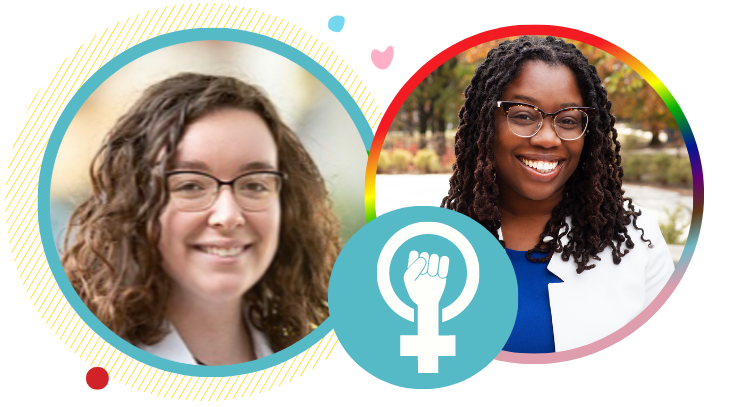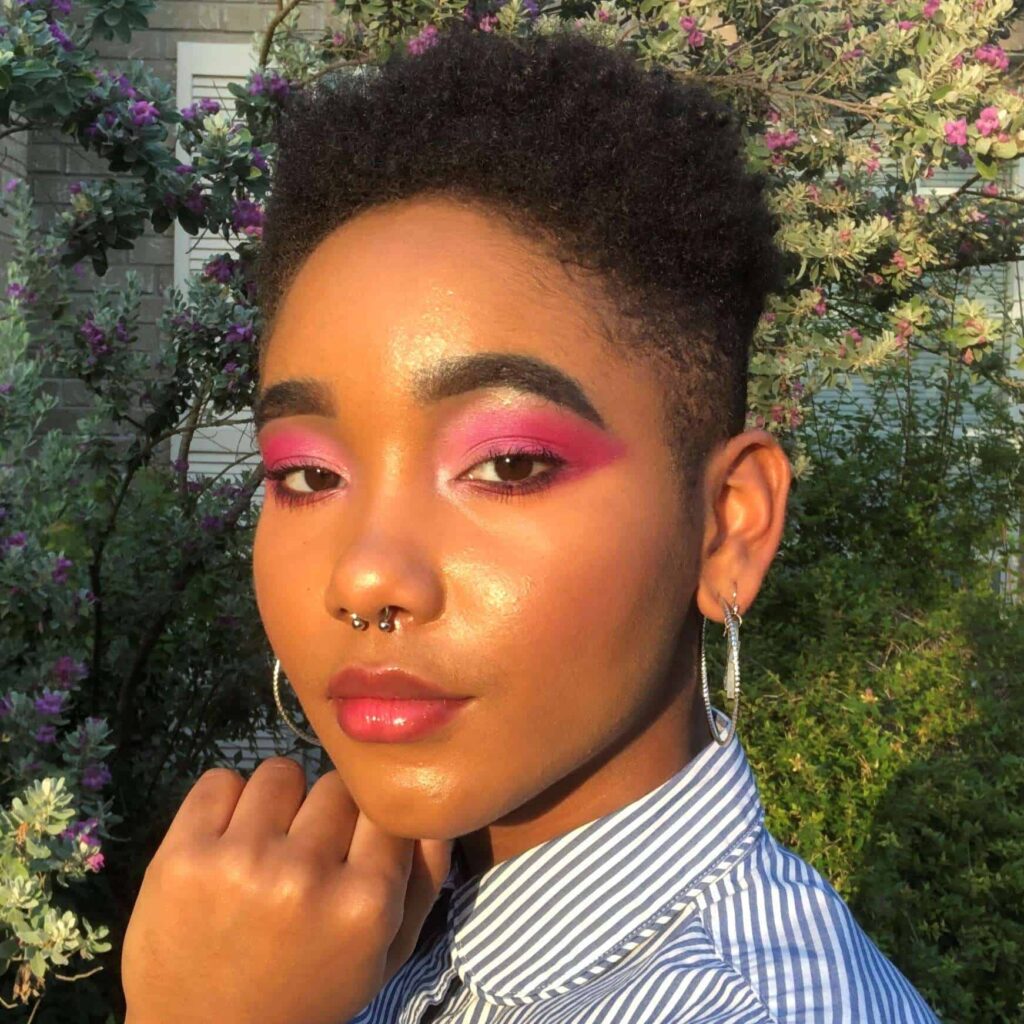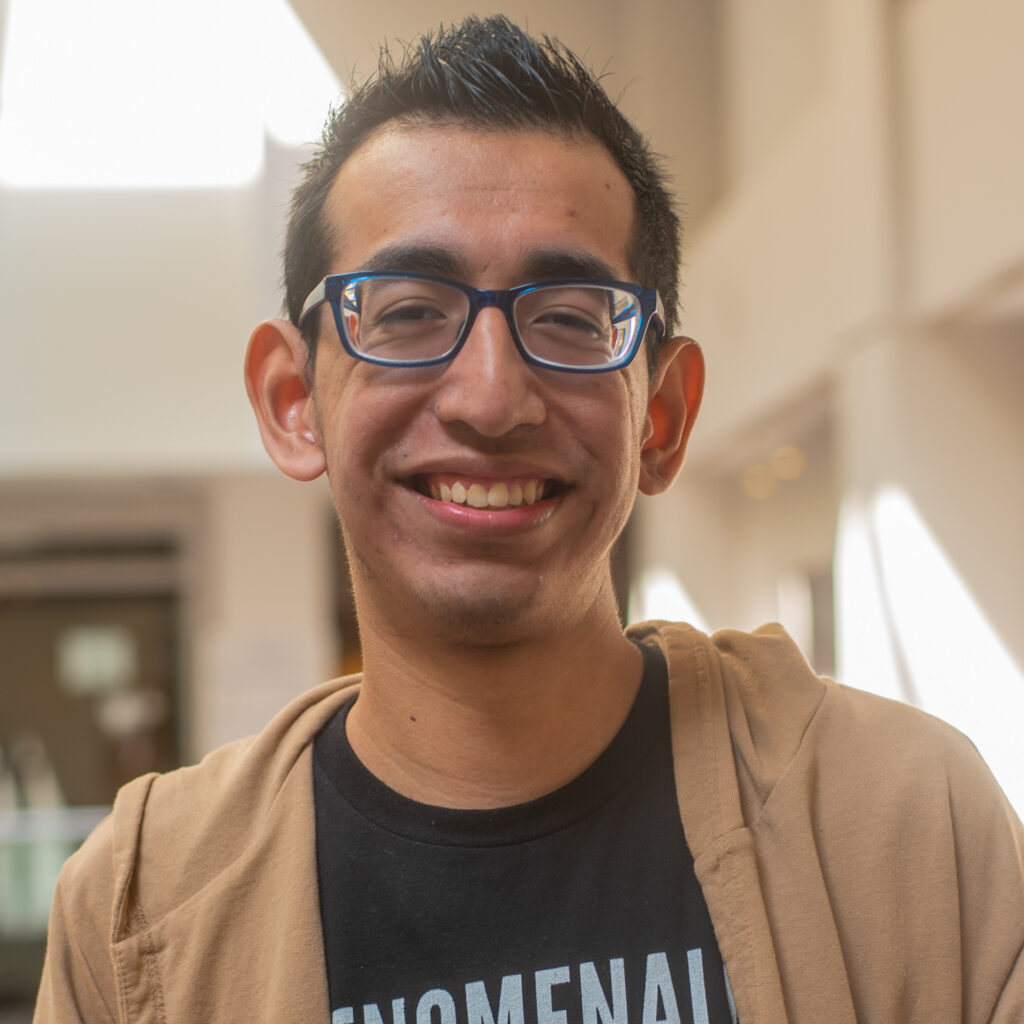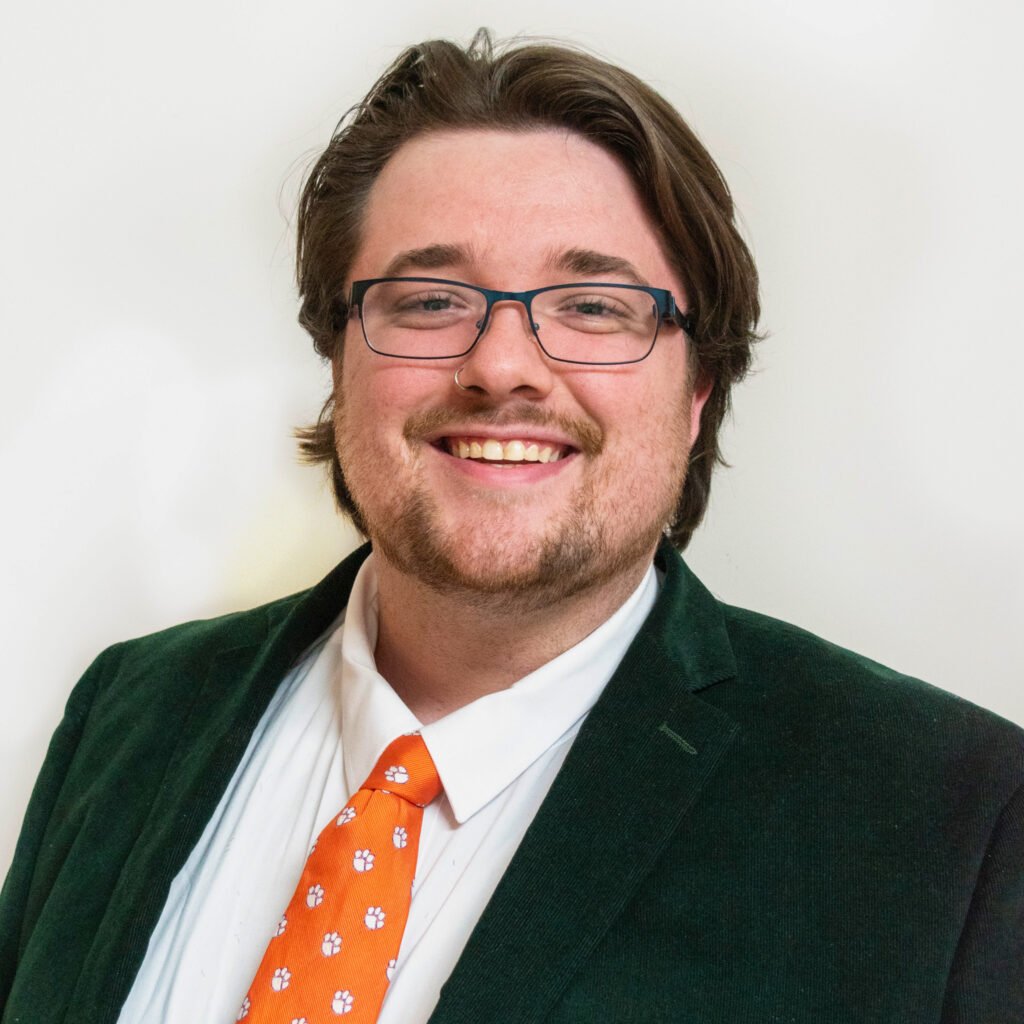Creating Space for LGBTQ+ People in Religious Communities

For many LGBTQ+ Americans, coming out means letting go of their faith communities. A 2020 Williams Institute study found that LGBTQ+ people between the ages of 18 and 24 are the least likely of any age group to identify as religious. As many LGBTQ+ college students leave the churches, temples, and mosques of their childhoods, some LGBTQ+ women scholars at Point Foundation are making their places of worship more inviting for LGBTQ+ people.
Point Flagship Scholars Devorah Simon and Lorae Bonamy-Lohve are both committed to their faiths. Devorah was raised frum, or religious, within her Jewish faith in New York City. Lorae is a Christian from Pennsylvania. Devorah’s childhood made her aware of the misogyny and intolerance many LGBTQ+ children faced growing up.
“Being part of the queer community doesn’t mean we don't have sexism to unlearn and misogyny to untangle,” Devorah said. “Masculinity and maleness are still centered and prioritized in many queer spaces.”
Both Devorah and Lorae remain in their religious communities to create more welcoming places of worship. Their presence and efforts help to combat homophobia and transphobia in their spiritual communities. Devorah and Lorae hope their decision to be both LGBTQ+ and religious will expand the tolerance and acceptance of LGBTQ+ people in religious communities.
“I think seeing representation of those who have similar experiences and backgrounds to you shows you what you’re capable of, shows you possibility in your own life, and shows you even some of the barriers that you may have to face,” Lorae said.” “I think having this representation is a way to show me… what might be my future, what might be a possibility for me.”
Finding Acceptance Across All Identities
Point is committed to this year’s Women’s History Month theme, “Celebrating Women who Tell Our Stories.” Both Lorae and Devorah see Point as an important part of their storytelling and community engagement. Point connects its network of students, alumni, and supporters in order to build community, and build upon existing knowledge and experiences.
“Point helps me to tell my story and the story of my community by validating its importance,” Lorae said. “A lot of times, people hear about marginalized or minoritized identities and don't necessarily celebrate them. “Point has not only shown me that [my work] matters, but they've shown me other people, they've connected me with other people who also believe that [it] matters. And I would say that my LGBTQ+ world and community has become a lot bigger and a lot brighter since joining the Point family.”
Devorah shares Lorae’s commitment to sharing the stories of her religious community.
“The story of my community is not often told outside of it, but at Point I was asked and invited to share,” Devorah said. “Space was made for me, which is so much more welcoming than when you're asked to make it for yourself. I'm Jewish, I'm a lesbian, I was raised frum, I'm a woman, I'm queer, and the Point community holds all of these truths and regards them equally.”
Visibility and Representation in Spiritual Communities
According to the Institute for Jewish Policy Research, the Orthodox Jewish community continuing to grow at a faster rate than other Jewish communities. As the Orthodox community continues to grow, more LGBTQ+ Jewish children will be raised by a religious community that does not yet affirm their gender and/or sexual identities. For Devorah and the organizers at Shtultz, it is important to visible and active within Orthodox communities for themselves and for LGBTQ+ Jewish youth across the country.
Shtultz, which is named for the Yiddish word for pride, supports LGBTQ+ youth from Chassidish and Yeshivish families. Devorah, who was raised religious and is a visible queer woman in the frum community, believes it’s important to recognize that LGBTQ+ Jews have always existed. Women and LGBTQ+ Jews, however, are forbidden from attending the schools and same education as the men in Jewish communities.
“(We have been) kept out of Yeshivas and held back from obtaining the type of education that would allow us to be full members of the community, kal v'chomer, let alone becoming members of the community that can paskan halachah, or determine the laws for these generations and future generations,” Devorah said.
Devorah and the Shtultz organization recognize that LGBTQ+ Jewish community is still navigating this intersection of identities. Devorah’s work with Shtultz focuses on providing resources and community to young LGBTQ+ frum Jews, largely because many of the older Jewish LGBTQ+ community have left already. Devorah hopes that together, the frum community can grow as a safe place for LGBTQ+ Jewish children of all identities. Lorae is also working on building LGBTQ+ community within her faith. As a third-year doctoral student at the University of Maryland, much of her research focuses on racialized religious oppression and heterosexism, and inclusive campus environments. She currently volunteers with Q Christian Fellowship and facilitated the College Student Affinity Group at Q Christian Fellowship’s national conference in January. After graduating, she hopes to work in student affairs in some capacity at the intersection of religious and LGBTQ+ identities.
“What my work has done, I believe, is show some people, maybe not a whole lot of people, that there's hope, that there's life, that there is a way that you can reconcile these identities,” Lorae said.
Together, Lorae and Devorah’s work is expanding acceptance for LGBTQ+ people within religion, which has often been closed off to the LGBTQ+ community. They do this by sharing their own experiences within these communities, providing opportunities for others to share their stories, and living their lives as out and proud LGBTQ+ women in their communities.
Related Posts
January 21, 2021, Andrae Vigil-Romero

Meet Point Scholar Onyx
What college/university are you attending and what made you choose it? Harvard University. I chose...
December 21, 2020, Andrae Vigil-Romero

Meet Point Scholar Alan
What college/university are you attending and what made you choose it? University of Nevada Las...
January 08, 2021, Andrae Vigil-Romero

Meet Point Scholar Tyler
What college/university are you attending? Clemson University Photo Credit: Clemson University...